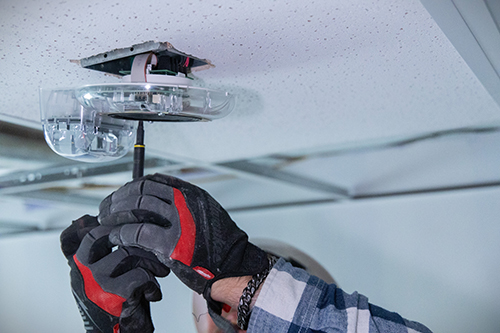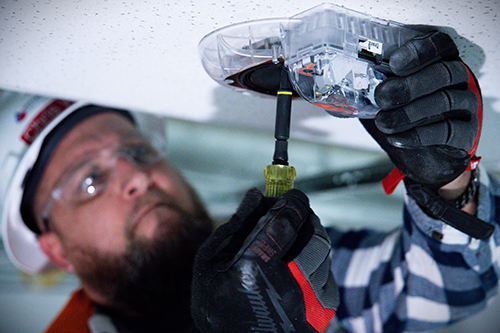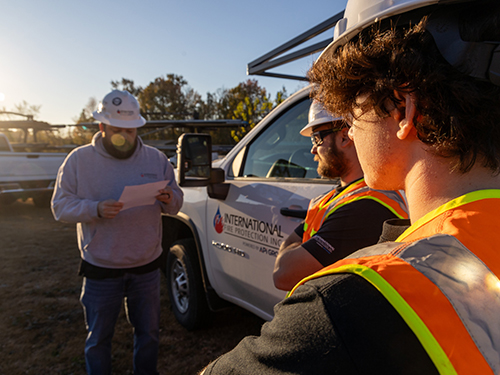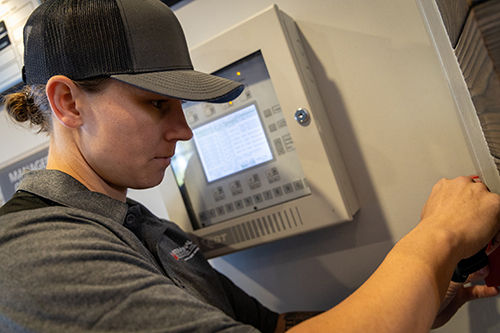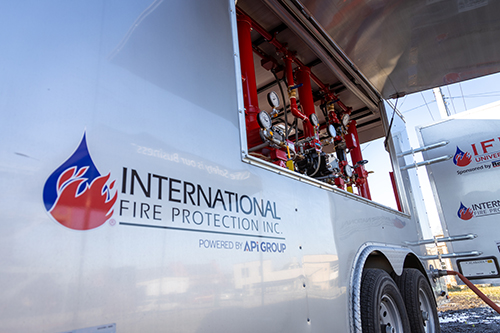
International Fire Protection University
Fire Protection & Fire Alarm System Training Courses
At International Fire Protection, we take training seriously. For us, it is critical that our inspectors, installers and service technicians have a firm understanding and knowledge of the life safety equipment and systems they may encounter in the field. In order to do so, we have created International Fire Protection University (IFPU).
At our corporate office in Madison, Alabama, we have constructed the IFPU training rooms to train our employees and customers, as well as fire department personnel, on life safety systems.
Our sprinkler lab has 14 different makes and models of fully operational fire sprinkler systems and we have a vast array of systems to provide hands on training, including:
- wet systems (alarm valve and riser check)
- dry systems (pressure differential and latching)
- pre-action systems (single and double interlock)
- deluge systems (dry pilot and solenoid activated)
- fire alarm systems inspection and testing
- special hazards fire suppression systems
ALL of these fire protection systems are fully functional, including sending supervisory, trouble and alarm signals to a dedicated alarm panel for real world practicality. We have developed a week-long class for training new inspectors who are seeking to take their NICET level I and level II examinations, teaching them how to navigate NFPA25 and take a hands-on approach to the fire sprinkler systems.
FIRE SPRINKLER SIMULATION TRAILER
As a 24/7 service provider of fire protection and life safety systems, International Fire Protection genuinely cares about Taking Care of Each Other, that’s why it’s one of our values. That means taking care of our employees as well as people in our local communities. We take corporate social responsibility seriously by actively partnering with municipal fire departments and our clients to host fire safety demonstrations.
Some of the topics covered include:
- Types of fire sprinkler systems
- How sprinkler systems work
- How to isolate a system
- How to use a wedge to stop the waterflow from the different types of sprinkler heads
Working with local fire departments helps to improve the safety of our neighbors -- those working and living in the communities and states we serve. When members of the fire department are educated on the de-activation of fire sprinkler systems in the midst of fighting a fire, they are better equipped to respond to true emergency situations.
